Conflict
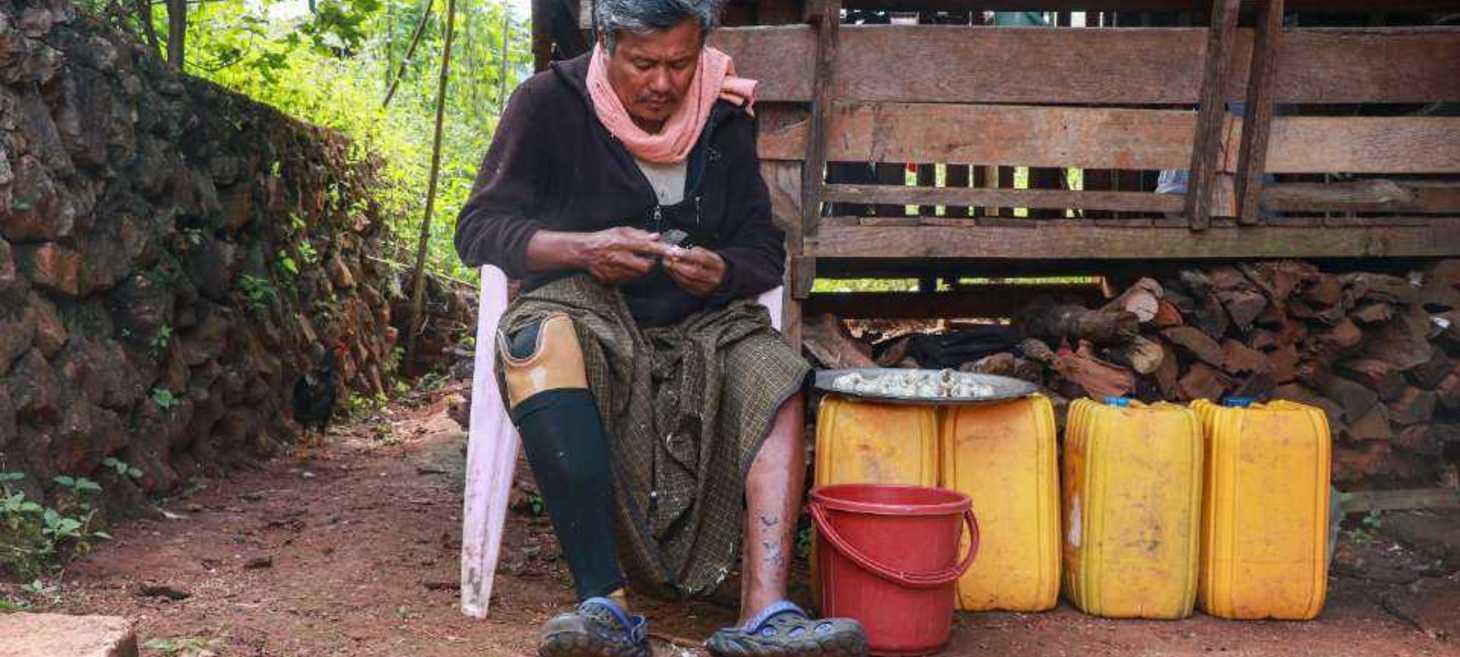
Myanmar junta accused of forcing civilians to clear mines - UCA News
Myanmar's military junta is facing accusations of forcing civilians to clear landmines, a practice that has raised significant human rights concerns. Reports indicate that villagers, including women and children, are being coerced into dangerous demining tasks without proper training or equipment, putting their lives at risk. This alleged exploitation is part of broader military operations in conflict zones, exacerbating the humanitarian crisis in the region and drawing condemnation from international human rights organizations.
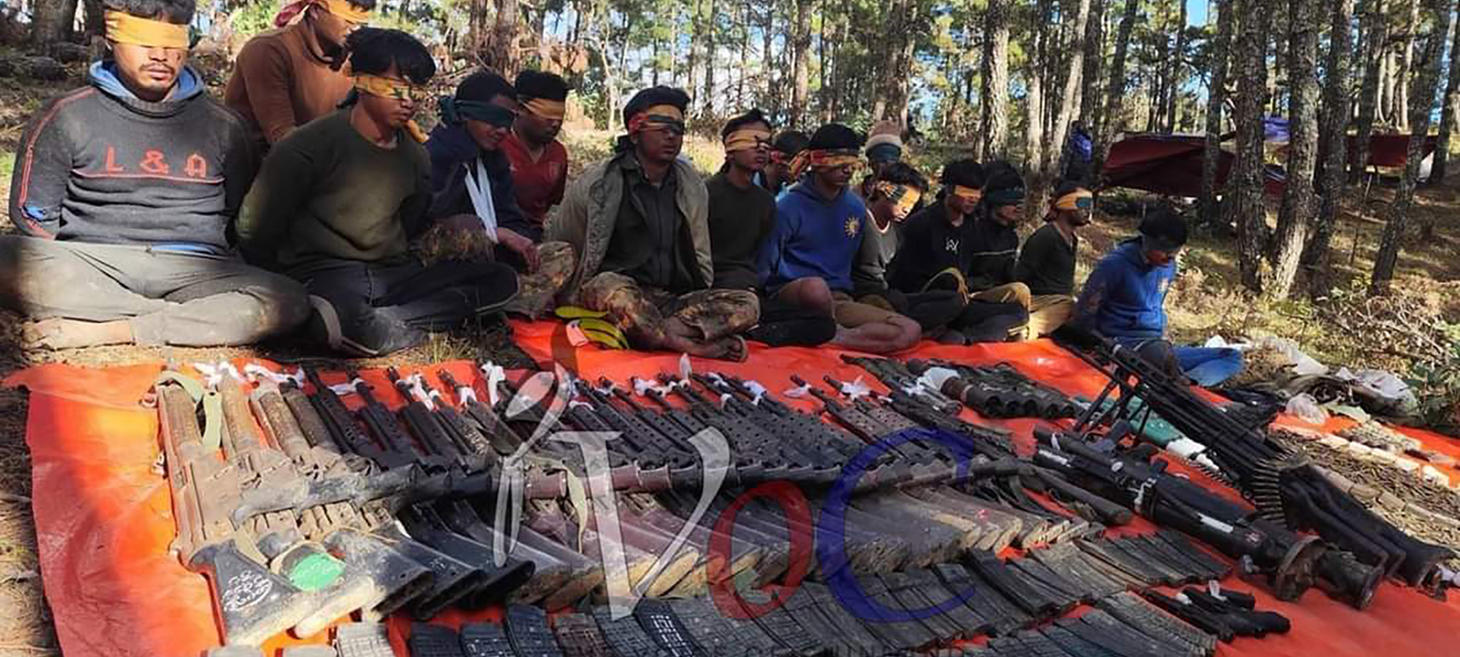
Chinland Council’s Op. Jericho Seizes Four Myanmar Junta Outposts
The Chinland Defense Force (CDF), under the Chinland Joint Defense Committee, successfully seized four Myanmar military outposts in Chin State as part of Operation Jericho. This operation, which took place over several days, resulted in the capture of significant amounts of military equipment and the deaths of numerous junta soldiers. The CDF's coordinated attacks are part of a broader resistance effort against the military junta, aiming to weaken its control in the region. These victories have been celebrated by local communities and are seen as a significant boost to the morale of resistance forces in Myanmar.
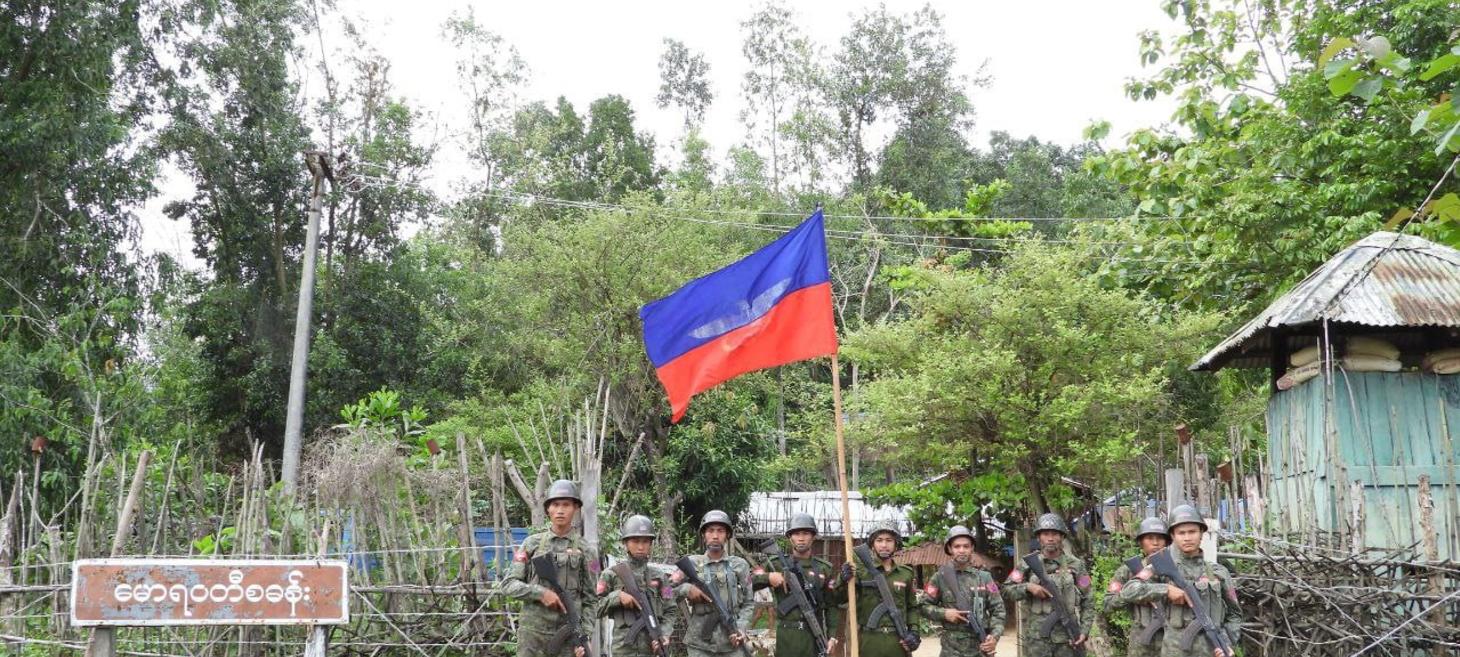
Arakan Army steps up effort to capture Myanmar junta’s remaining bases in Taungup
The Arakan Army (AA) has intensified its military campaign to capture the remaining Myanmar junta bases in Taungup, southern Rakhine State, following its recent takeover of the town. The AA launched simultaneous attacks on three key military positions, including the Military Operations Command 5 (MOC-5) headquarters and two Light Infantry Battalion bases, which are still under junta control. This escalation comes after the AA successfully seized all regime outposts within Taungup on November 24, following over two weeks of fighting. The ongoing efforts reflect the AA's determination to consolidate control in the region and weaken the junta's military presence.

Myanmar Regime Continues Karenni Offensive Despite High Casualties
Myanmar's military regime is persisting with its offensive in Karenni State despite suffering significant casualties. The conflict has intensified, with the junta deploying airstrikes and heavy artillery against the Karenni Nationalities Defense Force (KNDF) and its allies. Despite the regime's losses, including the deaths of numerous soldiers and the destruction of military equipment, it continues to push forward, aiming to regain control over territories held by resistance forces. The ongoing violence has exacerbated the humanitarian crisis in the region, displacing thousands of civilians and drawing condemnation from international observers.
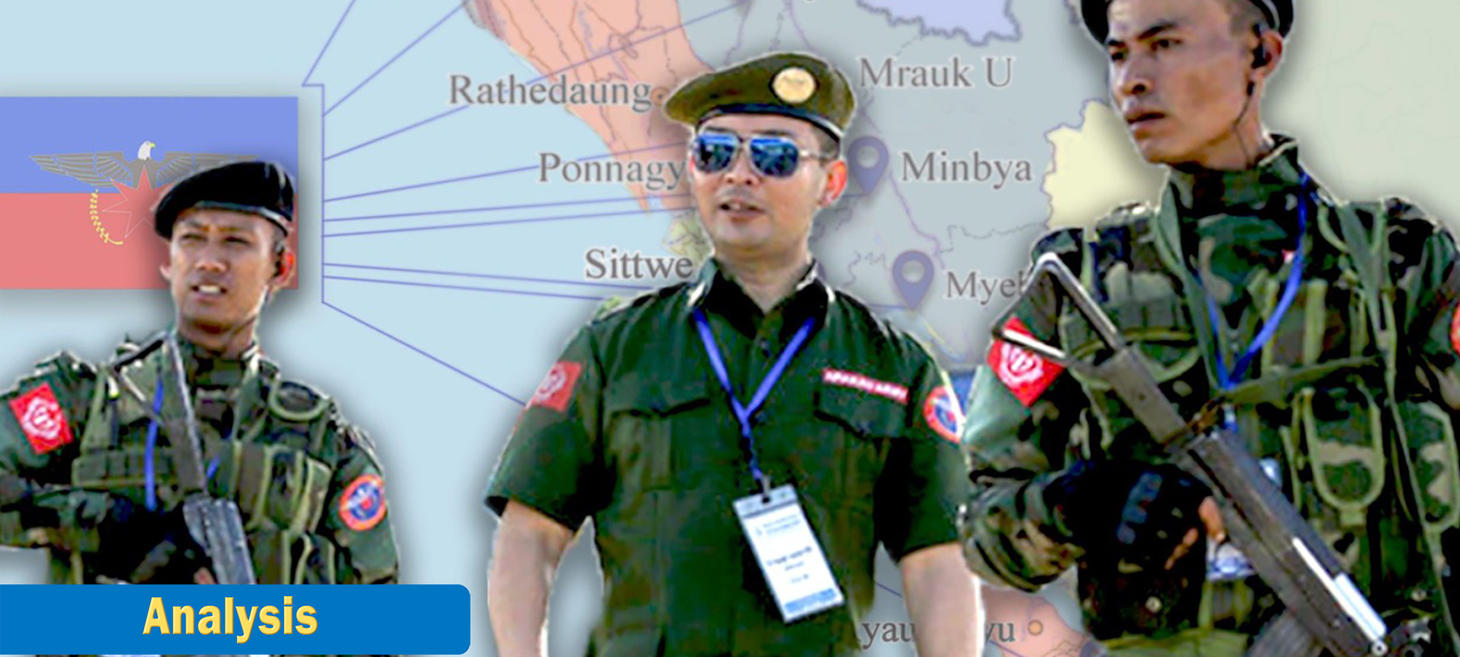
Myanmar Junta Rakhine Grip Weakening: Analyst
Analysts suggest that the Myanmar junta's control over Rakhine State is weakening, primarily due to the growing influence and military successes of the Arakan Army (AA). The AA has gained significant territorial control and local support, challenging the junta's authority in the region. This shift in power dynamics is compounded by the junta's inability to effectively manage the complex socio-political landscape of Rakhine, which includes ethnic tensions and demands for greater autonomy. The weakening grip of the junta in Rakhine State highlights the broader challenges it faces in maintaining control across Myanmar amid ongoing resistance and conflict.
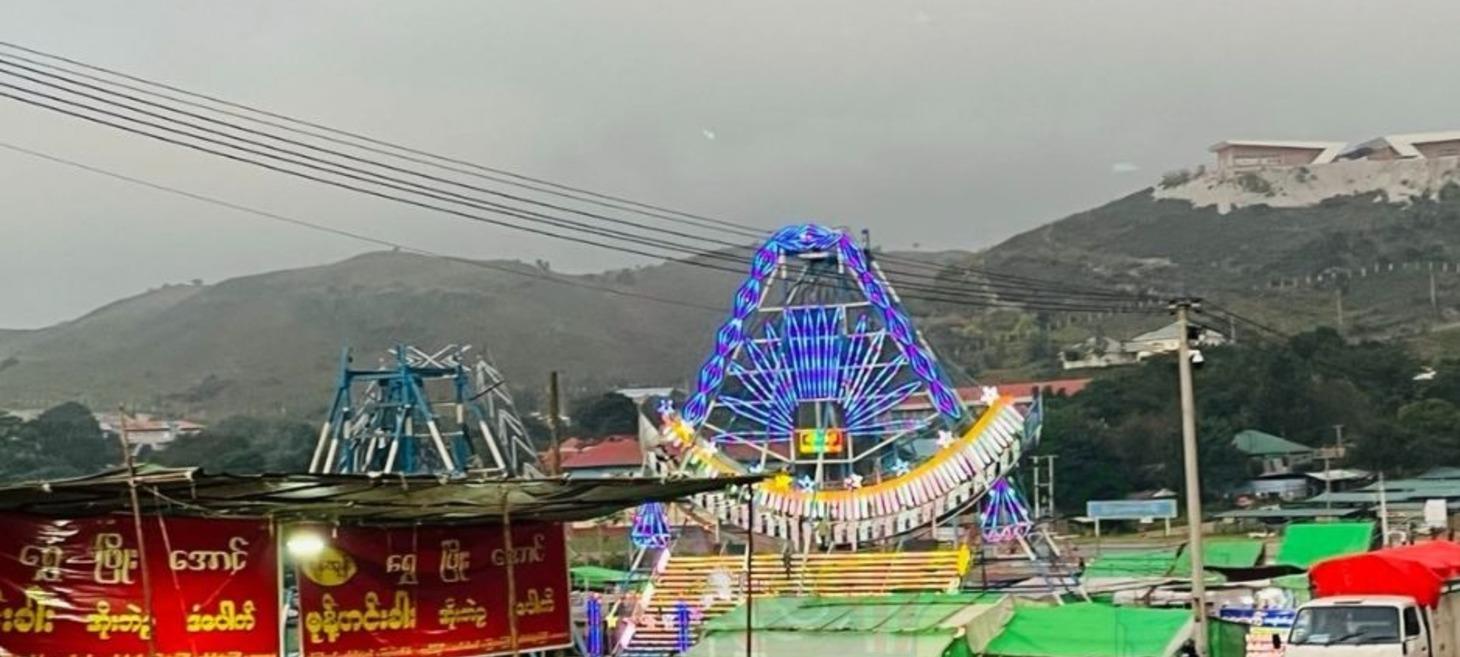
Junta Abducts 140 From Taunggyi City Before and During Tazaungdaing Festival
During the Tazaungdaing Festival from November 11 to 17, 2024, the Myanmar junta abducted 140 people in nighttime arrests across Taunggyi City, the capital of Shan State. These abductions, which began in October, intensified during the festival, targeting primarily drug users who ventured out at night. Locals suspect these individuals are being forcibly conscripted into the junta's army. The arrests have created a climate of fear, prompting warnings for residents, especially men, to avoid going out after dark. The junta's focus has been on individuals in the streets at night, with no reports of house raids. Additionally, daytime arrests have increased, with vehicles lacking proper registration being confiscated and several young people detained. The situation has marred Taunggyi's reputation for hosting Myanmar's largest Tazaungdaing celebrations, known for their elaborate hot air balloons and fireworks displays.
Arakan Army allies capture 14 Myanmar junta soldiers in Magway Region ambush
An armed group allied with the Arakan Army (AA) captured 14 Myanmar junta soldiers in an ambush on November 23, 2024, along the Ann-Padan road in Magway's Ngape Township. This road is a crucial supply route for the junta's Western Regional Military Command (RMC), linking Rakhine State to Magway Region, and has become a focal point for resistance attacks. The captured soldiers, led by Major Zaw Htet Naung, were intercepted while retreating from their position near Ann, where the RMC headquarters is located. The Student Armed Force, which carried out the ambush, reported providing medical assistance to the captives. However, due to communication disruptions in Rakhine, further details about the incident remain unclear. This ambush highlights the ongoing resistance efforts against the junta's military operations in the region.
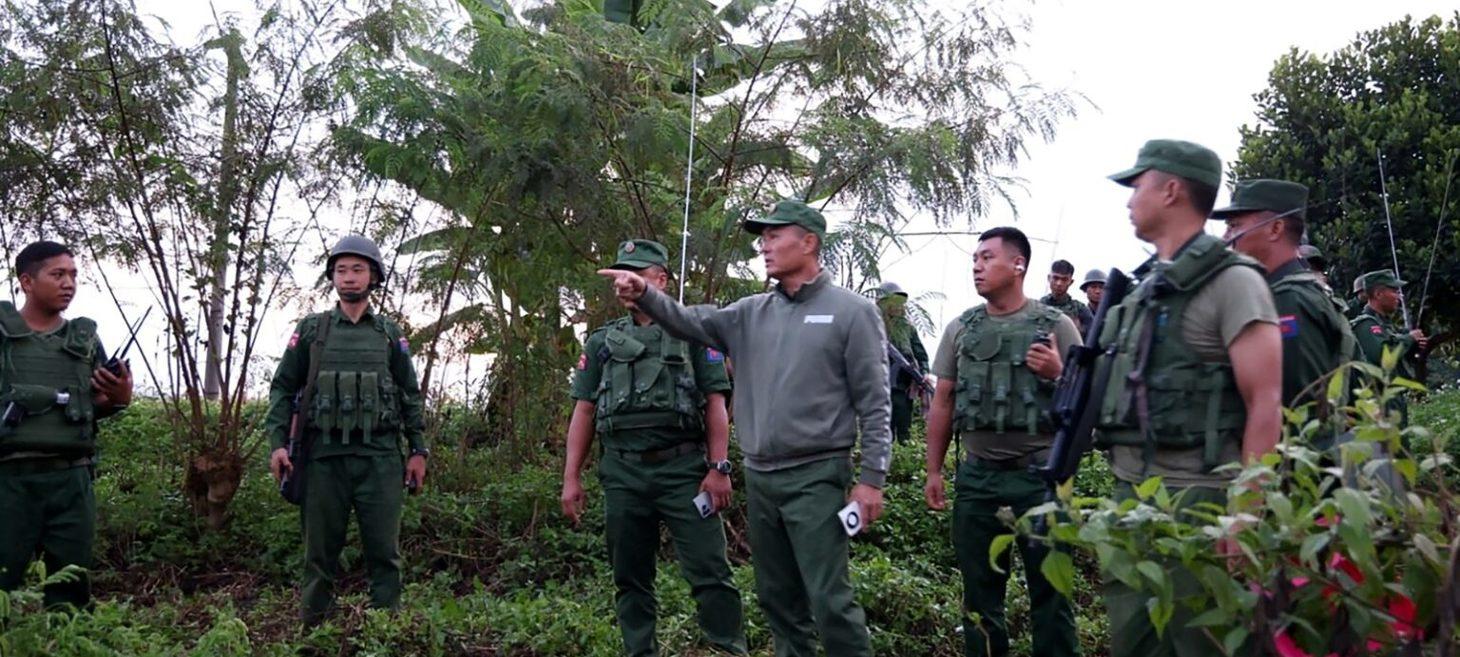
MNDAA second anti-junta armed group to call for peace talks
The Myanmar National Democratic Alliance Army (MNDAA), an ethnic armed group with around 8,000 fighters, has expressed readiness for peace talks with the Myanmar junta, mediated by China, to end over a year of renewed conflict along the Chinese border. This follows a similar call by the Ta’ang National Liberation Army, another member of the Three Brotherhood Alliance, which has been actively fighting the military. The MNDAA has declared a ceasefire and is open to political dialogue to resolve conflicts, particularly concerning the strategic town of Lashio, which they captured in August. Despite these overtures, the junta has not publicly responded, and airstrikes on TNLA-held territories continue. China, a significant ally of the junta and ethnic groups, has urged for an end to the fighting, which affects its Belt and Road initiative. The MNDAA leader recently visited China for medical care amid reports of his arrest.
Crime & Narcotics
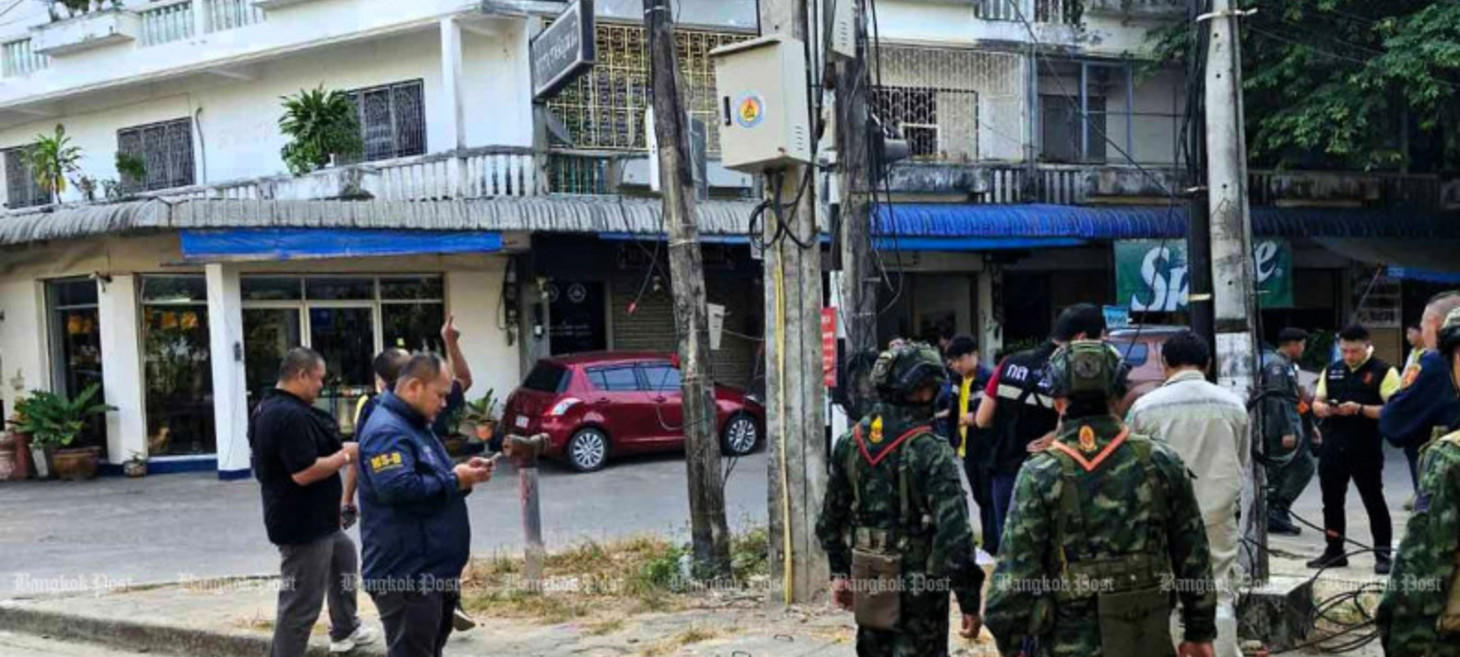
Illegal internet cables found installed across Thai-Myanmar bridge - Bangkok Post
Illegal internet cables were discovered installed across the Thai-Myanmar Friendship Bridge, used by call center gangs for internet access. This discovery was part of a joint investigation by Thailand's National Broadcasting and Telecommunication Commission (NBTC) and the police Taskforce for Information Technology Crime Suppression (TACTICS). The investigation revealed 16 large-sized, high-speed fiber optic cables, including two 216-core cables, two 96-core cables, and 14 24-core cables, extending several kilometers into Myanmar. The operation aimed to disrupt the activities of scammers who had relocated from Laos, and cutting these cables has successfully deprived them of internet access, marking the largest seizure of illegal internet cables in the area.
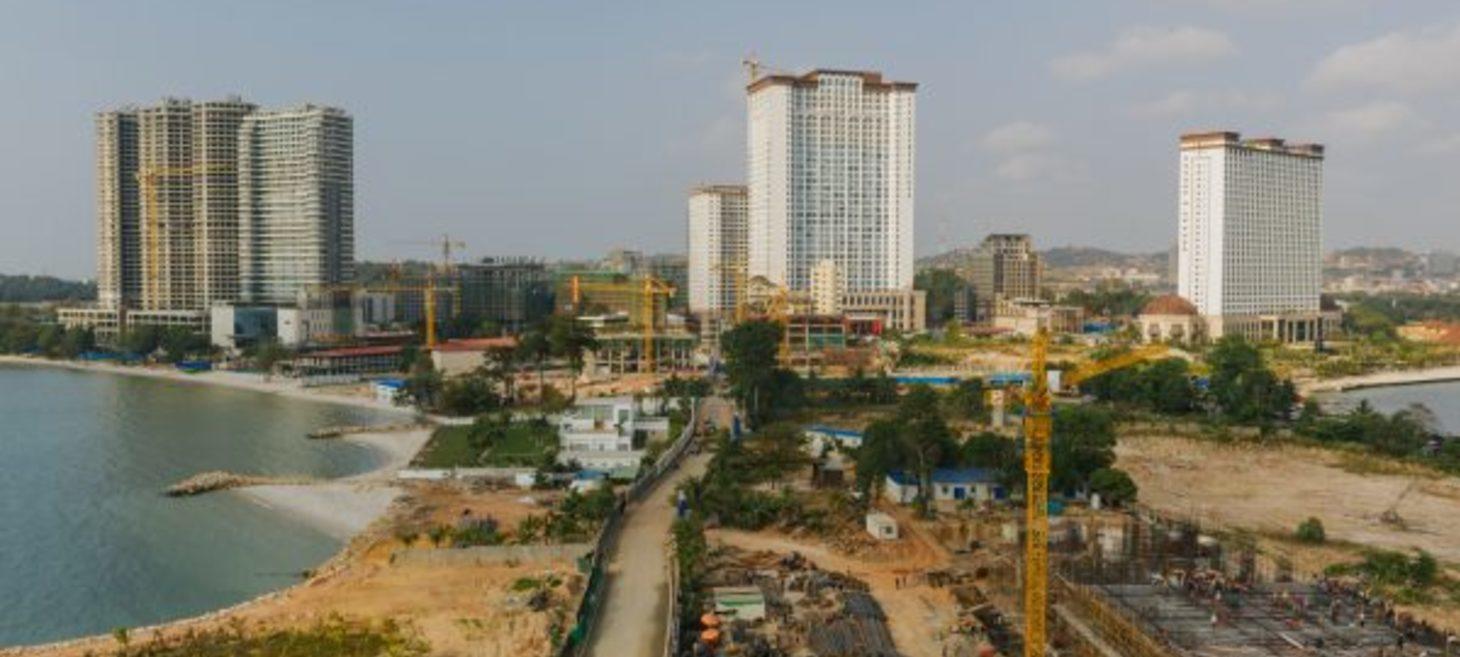
Debating Victimhood: The Complexities of Forced Criminality in Southeast Asia’s Scam Compounds
The article discusses the complexities surrounding forced criminality in Southeast Asia's scam compounds, where tens of thousands are trafficked and coerced into cyber-enabled fraud operations. Despite the widespread abuse, governments, particularly in Cambodia and China, often deny victimhood claims, labeling them as false to protect political and economic interests. This denial is partly due to the involvement of ruling elites in these lucrative industries, which significantly contribute to national GDPs. The lack of systematic data and reliance on anecdotal evidence complicates the recognition of victims, while recidivism rates are used to question their victim status. However, NGOs and civil society groups argue that many individuals in these compounds are vulnerable and lack support and opportunities, which leads to their exploitation. The UNODC has developed indicators to better identify victims, emphasizing the need for nuanced advocacy and capacity-building efforts to address this issue effectively.
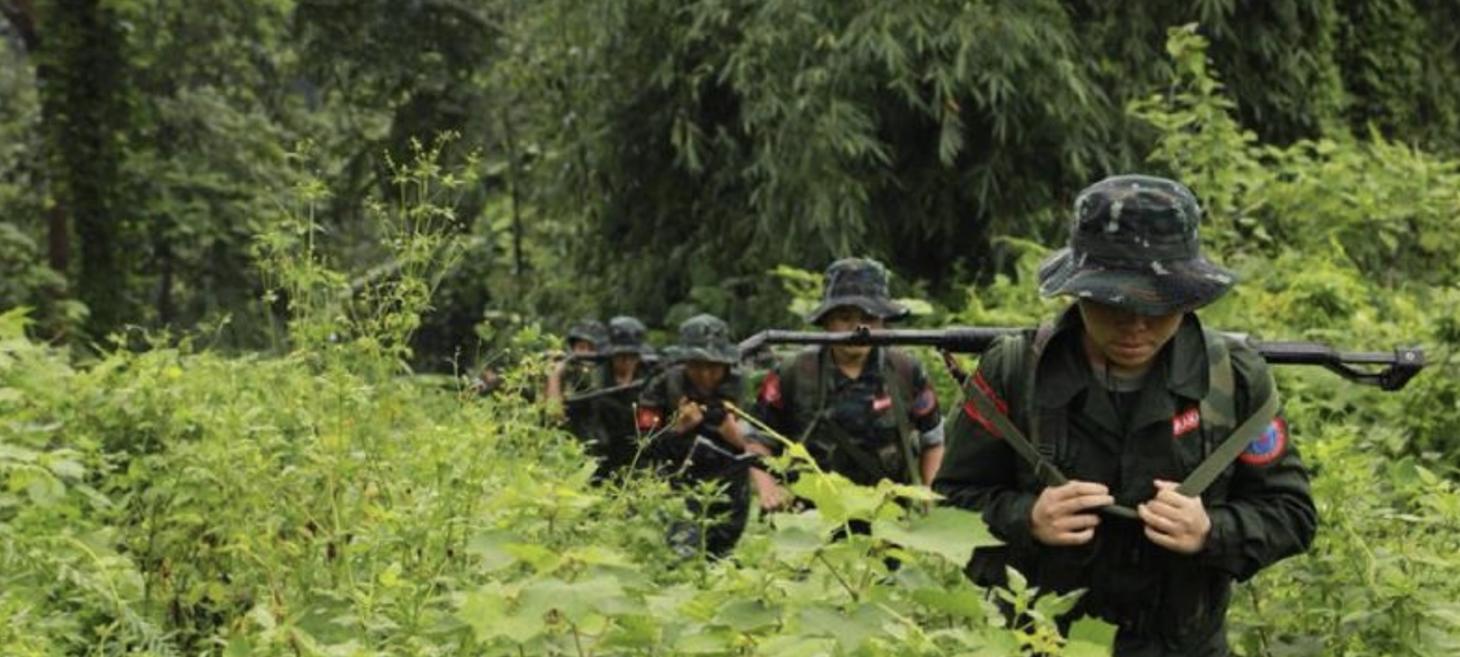
Thai police arrest Myanmar, Chinese nationals in online scam sting
In a recent crackdown dubbed "CIB Crushes Grey Dragon," Thai police arrested 15 individuals, including eight Myanmar nationals, in Chiang Mai Province for their alleged involvement in online scam operations. The operation targeted a group accused of creating fake social media accounts for use in fraudulent activities. Among those arrested were two Thai nationals, including the wife of the group's leader, a Chinese national who remains at large. The raids on 11 properties resulted in the seizure of a significant amount of equipment, including computers and mobile phones, highlighting the scale of the operation. This crackdown is part of broader efforts by Thai authorities to combat online fraud and related criminal activities.
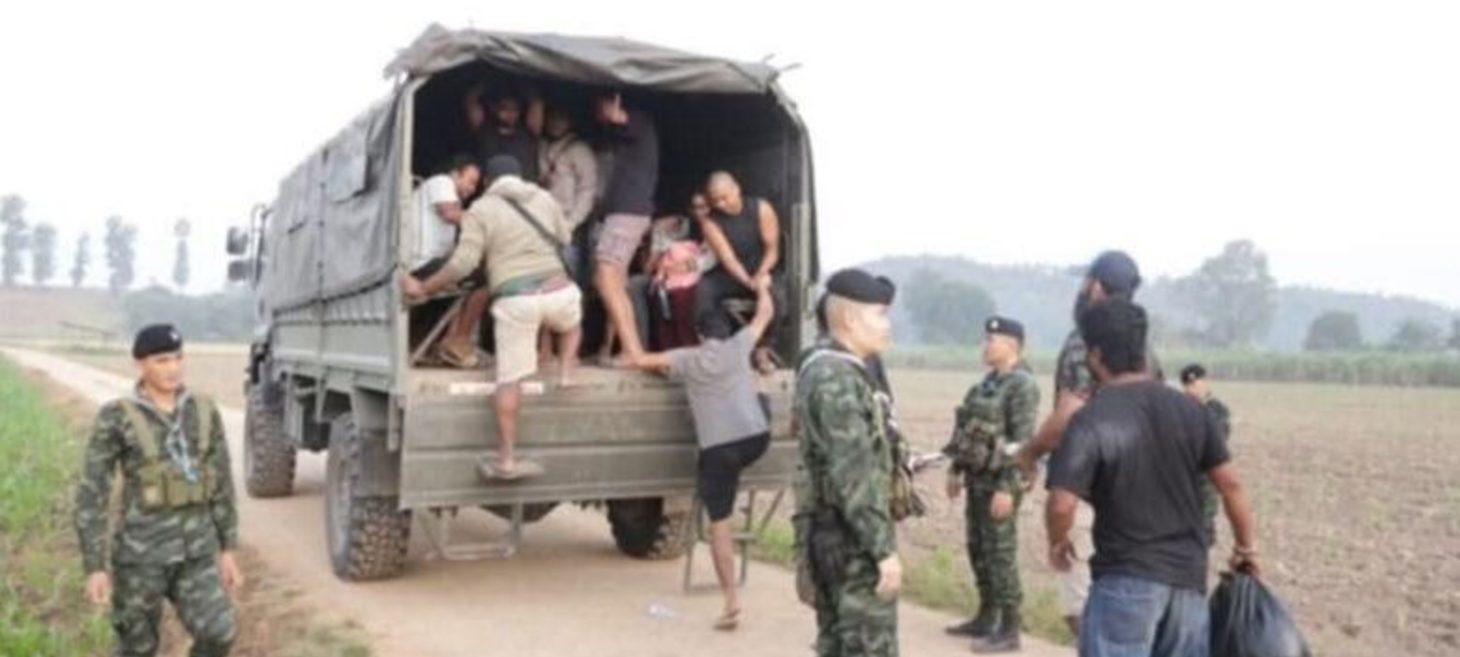
29 Foreigners Escape to Thailand From Scam Centres
On November 25, 2024, Thai soldiers rescued 39 foreigners who escaped forced labor in telecom scam centers in Myawaddy Township, Myanmar. The group, consisting of 32 Sri Lankans, 5 Nepalese, 1 Russian, and 1 Malaysian, crossed the Thaungyin (Moei) River into Thailand to flee scam operations in Kyauk Khet and Mehtawthalay villages. These scam centers, often linked to illegal casino activities and operated by Chinese nationals, have been expanding in areas controlled by the Democratic Karen Buddhist Army (DKBA) and the Karen Border Guard Force (BGF). Thai authorities are working with the respective embassies to facilitate the return of the rescued individuals. Despite awareness of these operations, the DKBA has not yet intervened, citing strategic reasons for their tolerance.
Economy
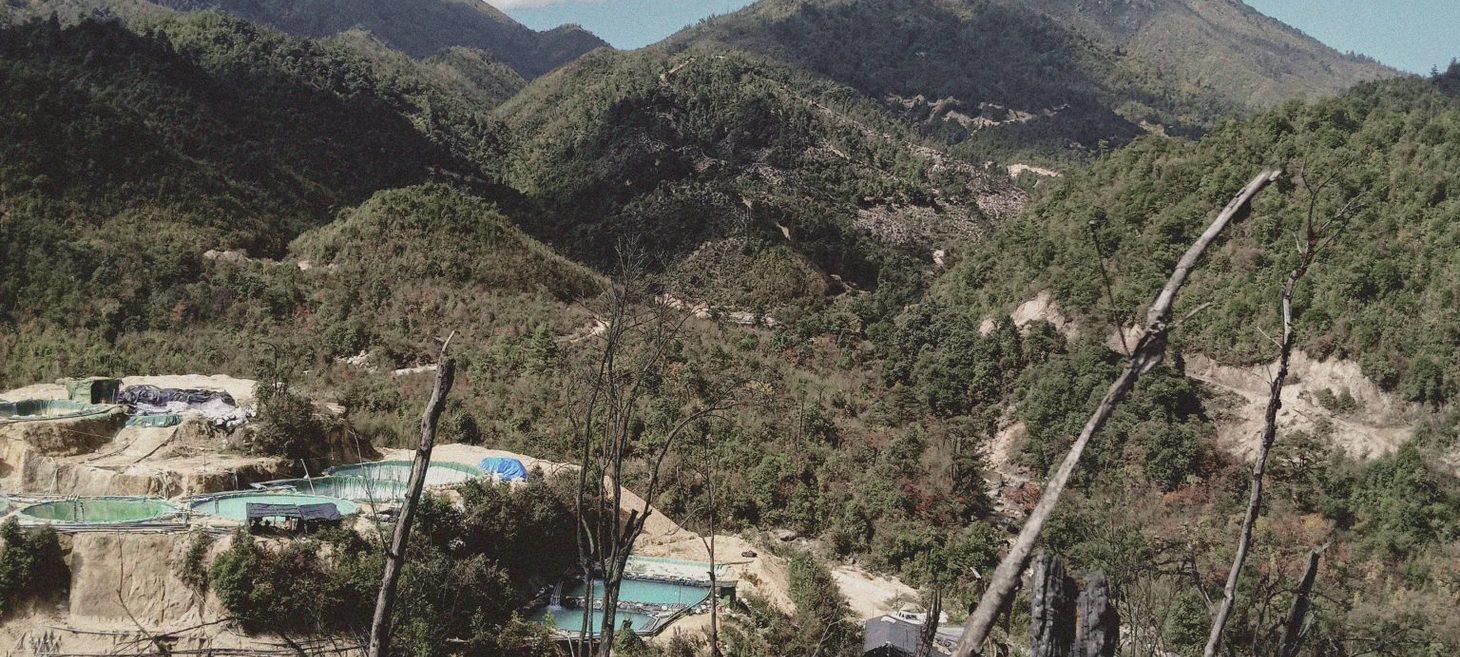
A ‘new chapter’? The future of rare earth mining under KIO rule
Rare earth mining in Myanmar's Kachin Special Region 1 has undergone significant changes with the Kachin Independence Organization (KIO) taking control from the BGF and affiliated militia led by warlord Zahkung Ting Ying. The mining industry experienced a post-2021 coup boom, with rare earth imports from Myanmar increasing dramatically. However, the KIO's recent takeover has raised questions about how they will manage the newly acquired resource wealth. The future of the industry may involve joint ventures between the KIO and potential partners, including Chinese investors or other ethnic armed groups. Environmental concerns remain, as the mining operations have historically lacked proper waste management and caused significant environmental degradation. The KIO's approach to regulation and sustainability will be crucial in determining the future of the industry, balancing economic interests with environmental and social responsibilities

Myanmar’s Tourism Sector Poised for Growth with Increased Visitor Numbers Expected During the New Year, Rebounding from Flood-Related Disruptions - Travel And Tour World
Myanmar's tourism sector is set for growth, with an anticipated increase in visitor numbers during the New Year as it recovers from disruptions caused by recent floods. The country is focusing on enhancing its tourism infrastructure and services to attract more international tourists. This rebound is expected to boost the economy and provide opportunities for local businesses and communities involved in the tourism industry.
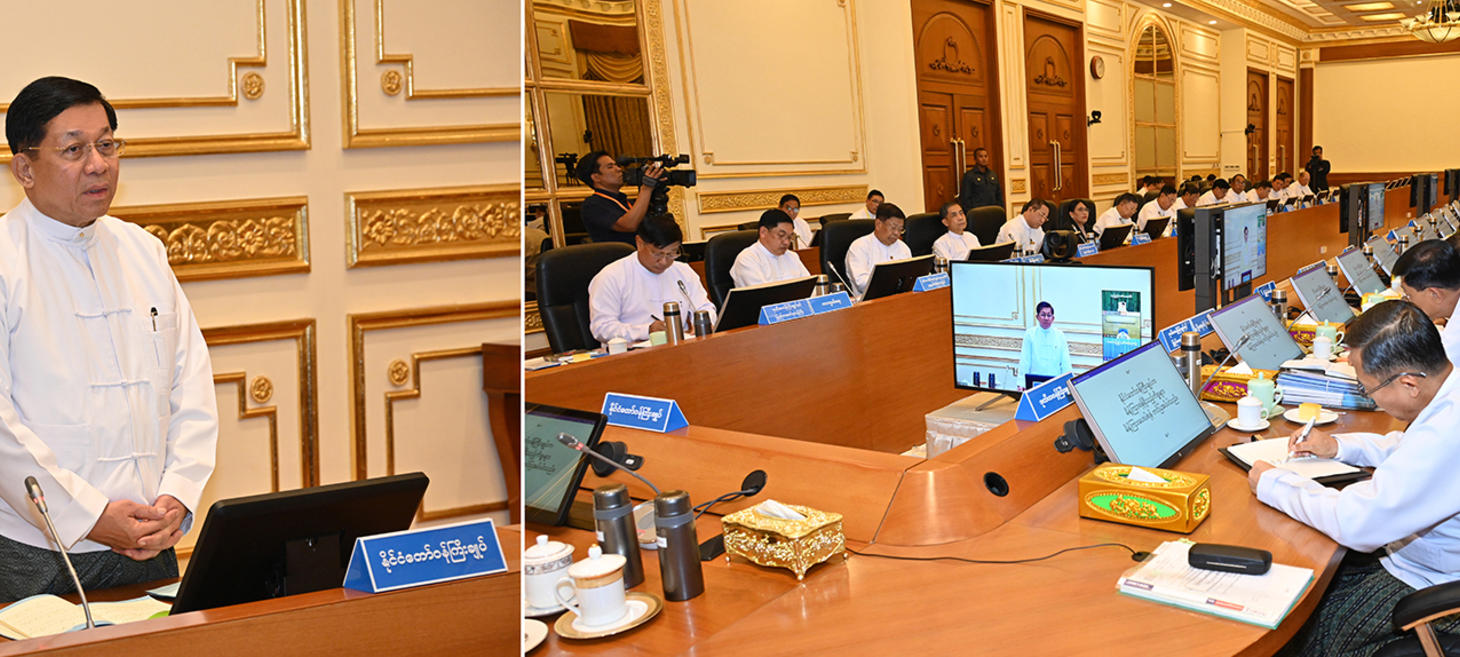
Non-profitable industries may be halted after reviews
The Myanmar government is considering halting non-profitable industries following a series of reviews aimed at assessing their viability. This move is part of a broader strategy to optimize resource allocation and enhance economic efficiency. The reviews will focus on identifying industries that are not contributing to economic growth or are operating at a loss. The government aims to redirect resources from these sectors to more productive areas, thereby fostering a more robust economic environment. This initiative reflects an effort to streamline operations and ensure that government investments yield tangible benefits for the country's economy.
Ethnic Issues
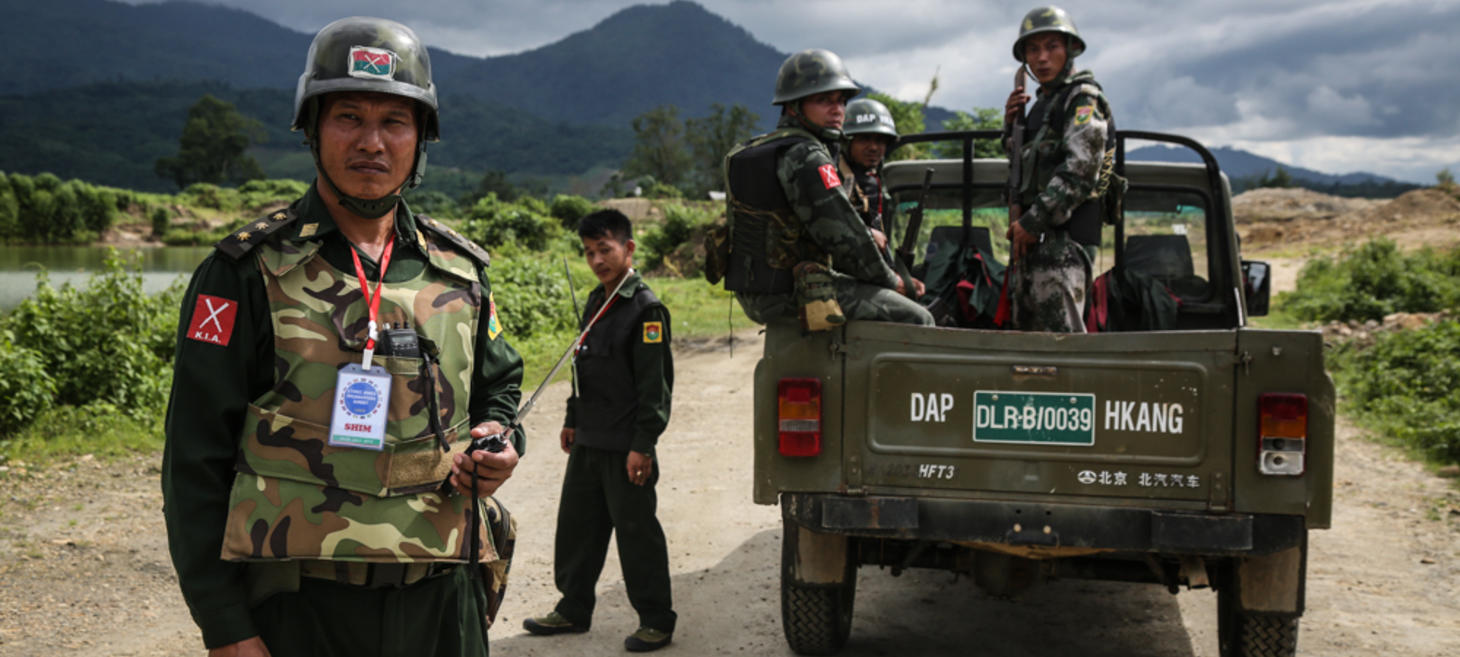
KIA Abolishes Kachin State’s Special Region-1 on China-Myanmar Border
The Kachin Independence Army (KIA) has abolished Special Region 1 in Kachin State, located on the China-Myanmar border, as part of its efforts to consolidate control over the area. This decision follows the KIA's recent military successes against Myanmar's junta forces, allowing them to assert greater authority in the region. The move is seen as a strategic step to strengthen the KIA's governance and administrative capabilities, enhancing their ability to manage local affairs independently. The abolition of Special Region 1 reflects the shifting power dynamics in Kachin State amid ongoing conflicts with the military regime.
Foreign Affairs
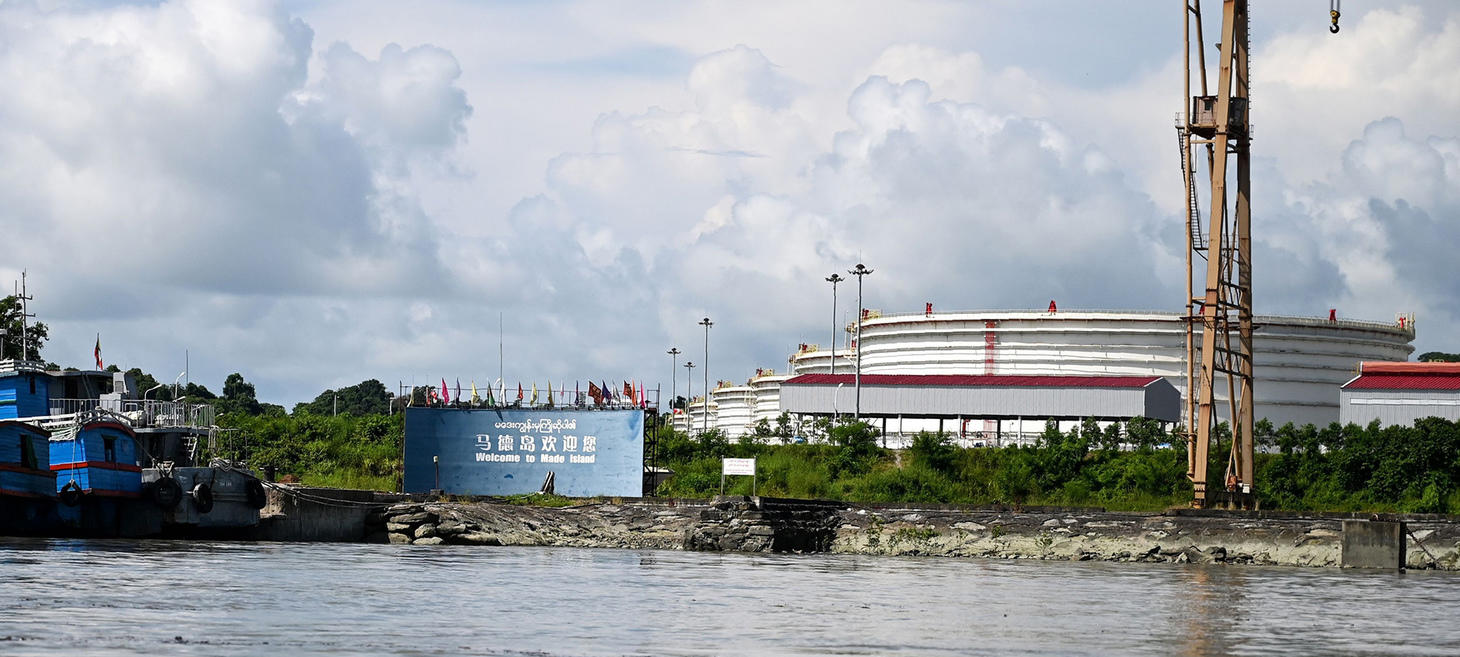
Myanmar military, Chinese government to establish joint security company
The Myanmar military junta has announced plans to form a joint security company with the Chinese government. According to the announcement in a military-controlled newspaper, the initiative was proposed by Chinese officials to protect Chinese investments in Myanmar. The new company will employ and manage armed personnel within the country. A 14-member working committee has been established, chaired by Maj-Gen Toe Yi from the home affairs ministry. The committee includes various officials from the military-controlled administration. This move has raised concerns about potential implications for security and governance in Myanmar, particularly given the military's ongoing control over the government.
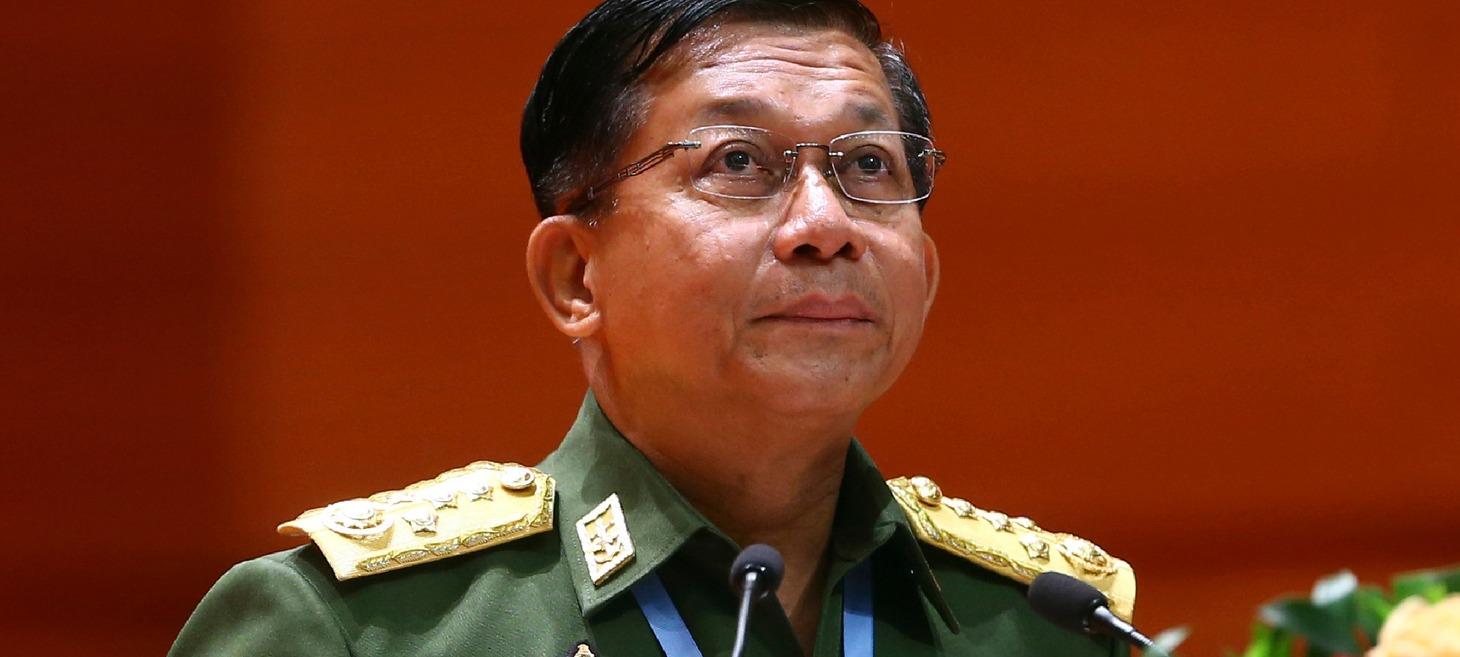
ICC’S ARREST WARRANT REQUEST FOR MIN AUNG HLAING: Charting political waters in a new setting
General Min Aung Hlaing of Myanmar faces an arrest warrant request from the International Criminal Court (ICC) for crimes against humanity related to the persecution of the Rohingya minority. This development comes shortly after China endorsed him as a key political figure in Myanmar, offering support for his planned 2025 national election and pressuring ethnic armed organizations to cease hostilities against his regime. Despite China's backing, the ICC's move has been welcomed by international rights groups and Rohingya advocates, marking a significant step towards accountability for the atrocities committed in 2016-2017. The warrant request, if approved, could undermine Min Aung Hlaing's political legitimacy and influence, potentially altering regional dynamics and international relations, particularly with China, which opposes the ICC's jurisdiction over Myanmar. The situation underscores the complex geopolitical landscape and the ongoing struggle for justice and reform in Myanmar.
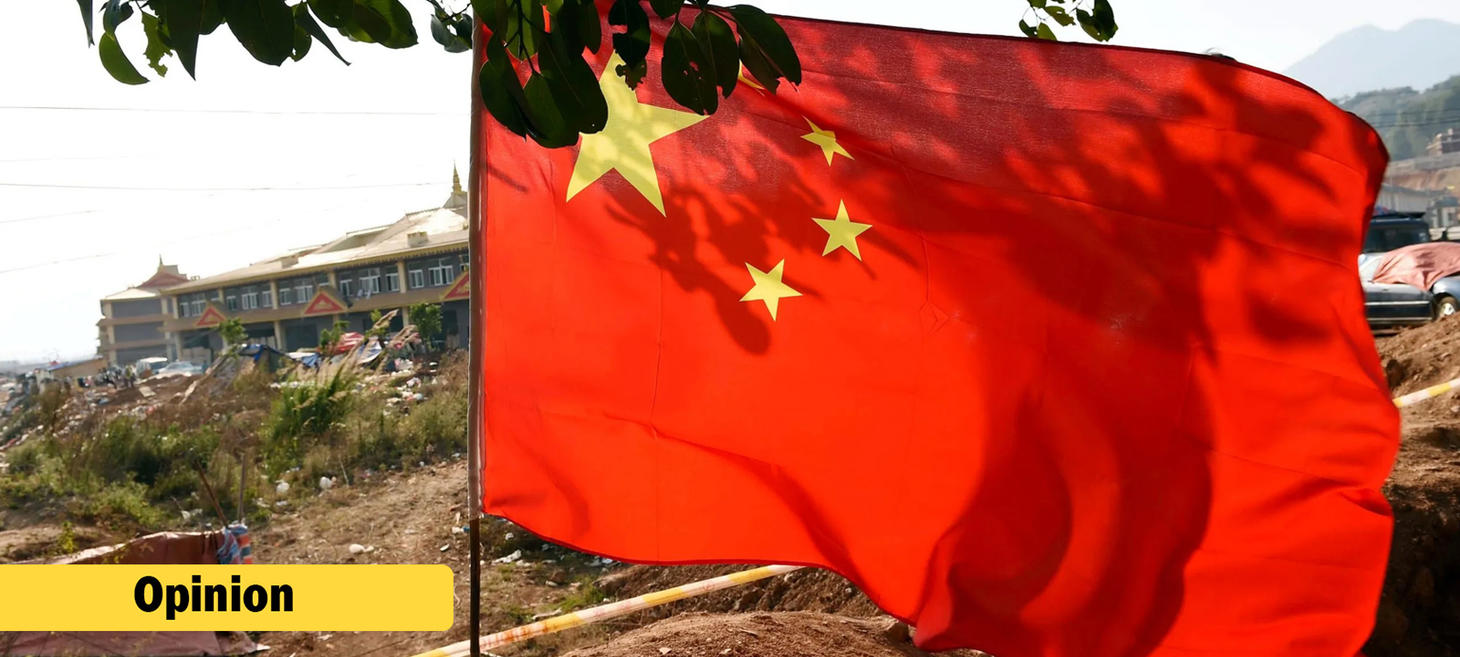
Can China Help Myanmar Junta Recapture Northern Shan State?
China's involvement in Myanmar's conflict is primarily driven by its strategic interests, including maintaining stability along its border and safeguarding economic projects. By engaging with Myanmar's ethnic armed organizations (EAOs) and encouraging them to limit support for the National Unity Government (NUG) and its People's Defense Forces (PDFs), China aims to prolong the junta's survival. This strategy involves pressuring EAOs to maintain ceasefires and discouraging them from aligning with Western-backed opposition forces. While China's actions help the junta by reducing EAO support for resistance groups, they also reflect China's broader goal of securing its interests rather than directly supporting the regime. This approach may lead to prolonged instability in Myanmar, as China balances its influence over EAOs and the junta to maintain regional stability and protect its investments.
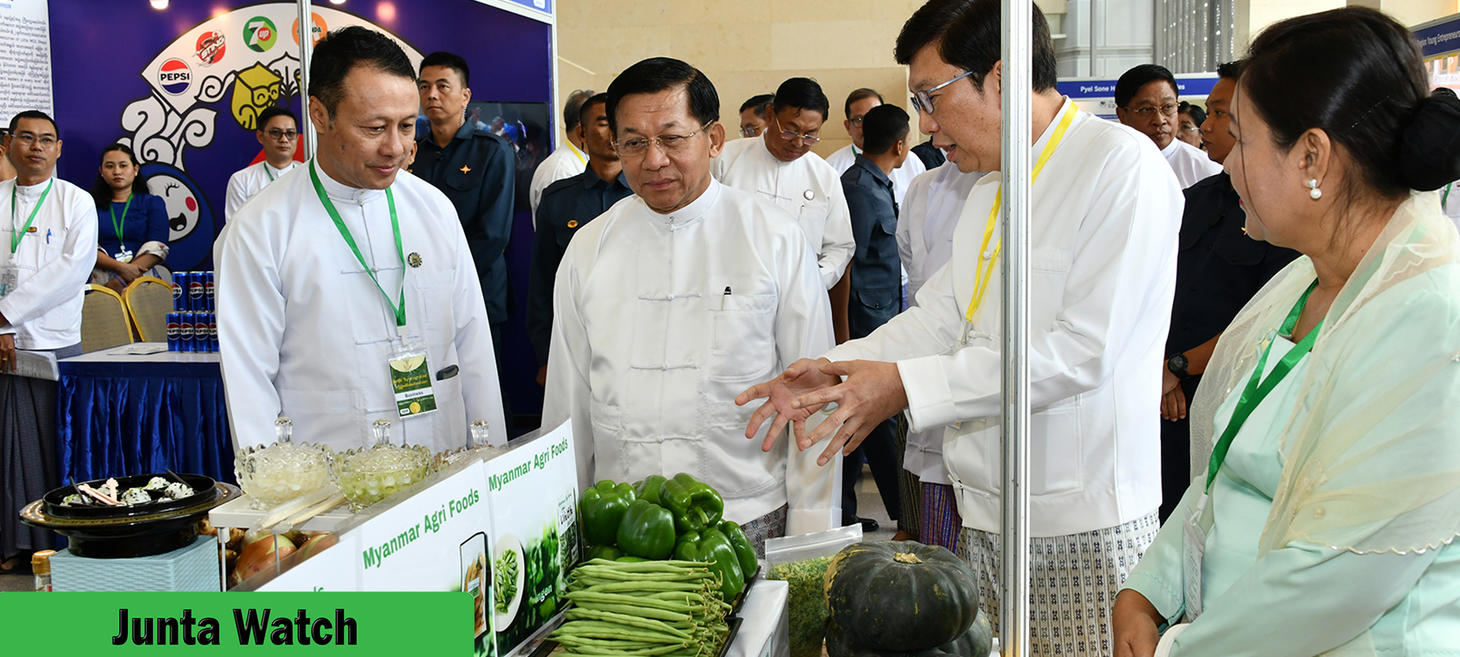
Caught Between Thailand and a Wa Place; Taking Chinese Lessons in Power
Caught between Thailand and the Wa region, Myanmar's junta is navigating complex geopolitical dynamics while taking cues from China's strategic maneuvers. The junta's reliance on China is evident as it seeks to maintain control over key regions and manage internal conflicts, particularly with ethnic armed groups. China's influence is significant, as it balances its interests by engaging with both the junta and resistance groups to ensure stability and protect its economic investments. This delicate balancing act involves leveraging relationships with various actors, including the United Wa State Army, to mitigate threats like scam centers that affect Chinese citizens. Despite the junta's efforts to consolidate power, China's approach remains pragmatic, focusing on maintaining influence without overtly supporting any single faction, thereby ensuring its long-term strategic interests in Myanmar are safeguarded.
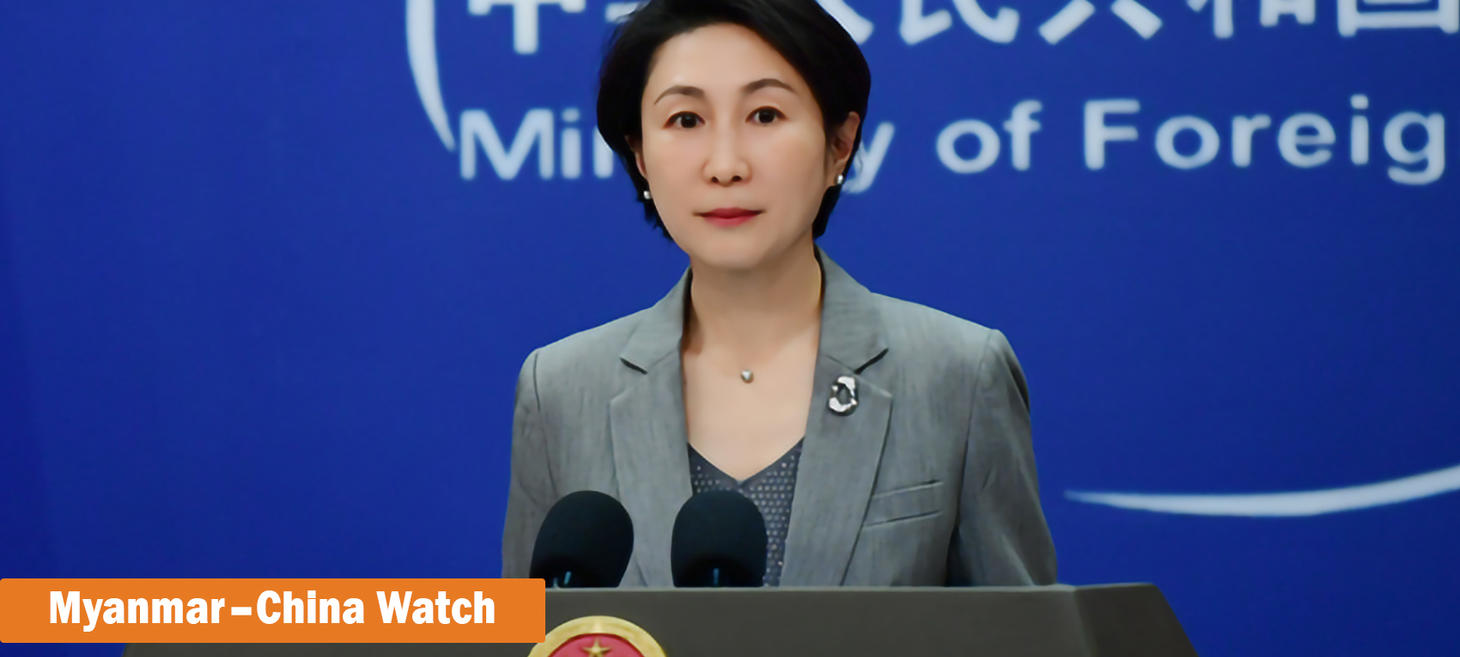
China Says ICC Has No Right to Arrest Myanmar Junta Boss
China has stated that the International Criminal Court (ICC) lacks the authority to issue an arrest warrant for Myanmar's junta leader, Min Aung Hlaing, regarding alleged crimes against humanity against the Rohingya. China's Foreign Ministry emphasized that Myanmar is not a signatory to the ICC, and thus the court has no jurisdiction unless the United Nations Security Council refers the case. This stance reflects China's broader diplomatic strategy of supporting Myanmar's military regime while maintaining its influence in the region. China's position underscores its commitment to protecting its geopolitical interests and its reluctance to endorse international legal actions that could destabilize its ally, the Myanmar junta.
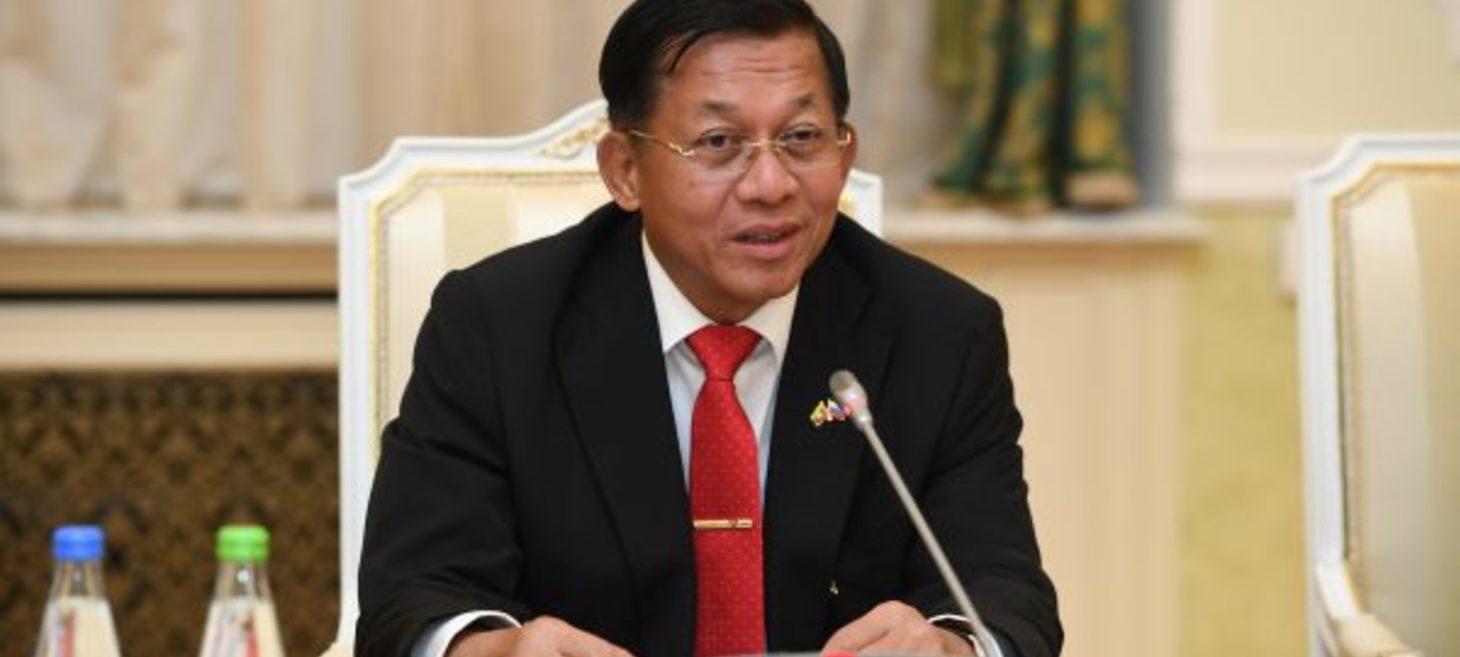
The Time of Impunity for Myanmar’s War Criminals Must End
The article discusses the International Criminal Court's (ICC) request for an arrest warrant against Myanmar's military leader, Min Aung Hlaing, for crimes against humanity related to the Rohingya genocide. This marks a significant step towards justice for the Rohingya, who suffered mass violence and displacement in 2016 and 2017. The ICC's move is part of a broader effort to hold Myanmar's leaders accountable, with more arrest warrants expected. Despite the ICC's actions, the Rohingya continue to face dire conditions in refugee camps in Bangladesh, highlighting the need for international support and resettlement efforts. The article emphasizes the importance of expanding the scope of justice to include crimes committed after Myanmar's 2021 coup, as the junta continues its violent campaign against civilians. The ICC's actions are seen as crucial in pressuring the junta and reinforcing global accountability measures, despite challenges and geopolitical complexities.
General News

Life apart from ‘May May’: Kim Aris, son of Aung San Suu Kyi, speaks
Kim Aris, the youngest son of Aung San Suu Kyi, has traditionally avoided public attention despite his prominent family background. However, following the 2021 coup in Myanmar and his mother's imprisonment by the military, Aris, who was born in Britain, has reluctantly become a vocal critic of the military regime. Motivated by a sense of moral duty to advocate for his mother and the people of Myanmar, he calls on the international community to remain vigilant and supportive. Aris is cautious about engaging with the media, partly due to the critical stance many outlets took against his mother during her time in government, particularly concerning her handling of the Rohingya crisis.
Humanitarian
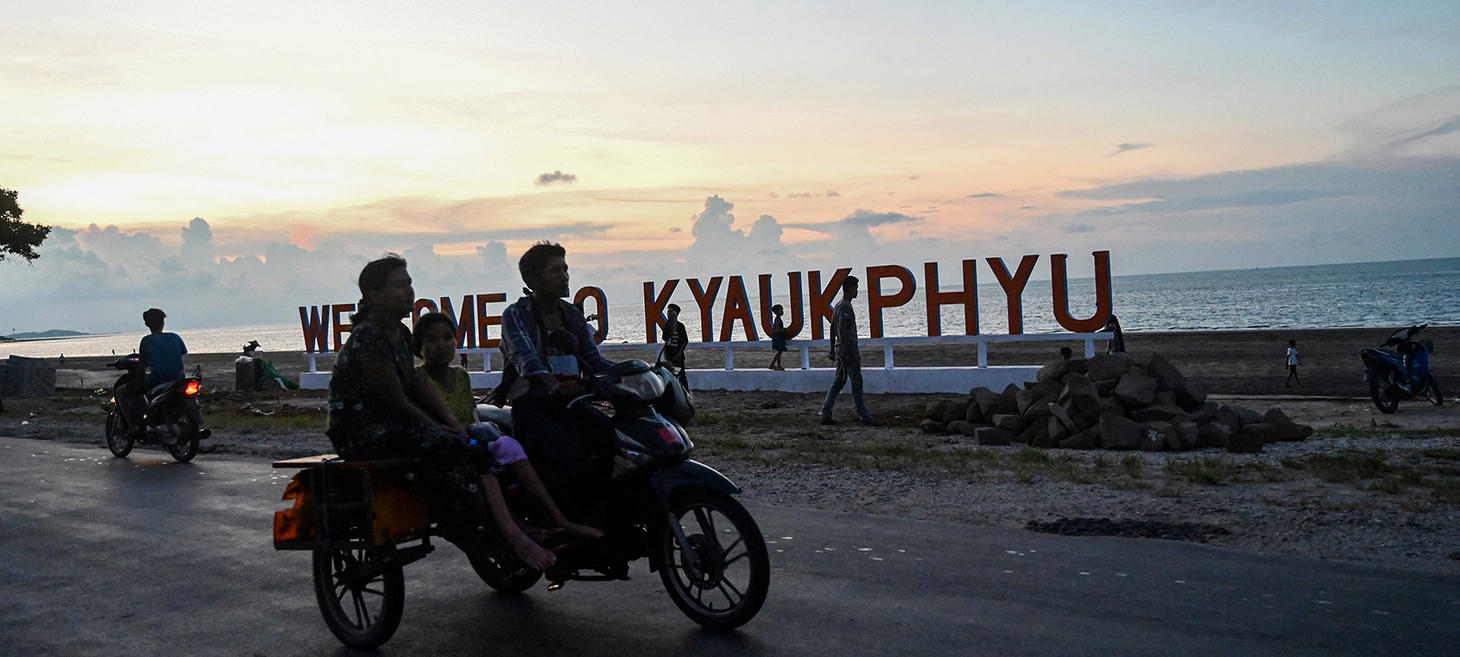
Food, Medicine Shortages Hit Rakhine’s Kyaukphyu
Food and medicine shortages have affected residents in Kyaukphyu, Rakhine State, Myanmar. The scarcity of essential goods has impacted local communities, though specific details about the causes and extent of the shortages are not provided in the given search result. It's important to note that without more comprehensive information from the article itself, this summary is based on the limited data available from the search engine result.
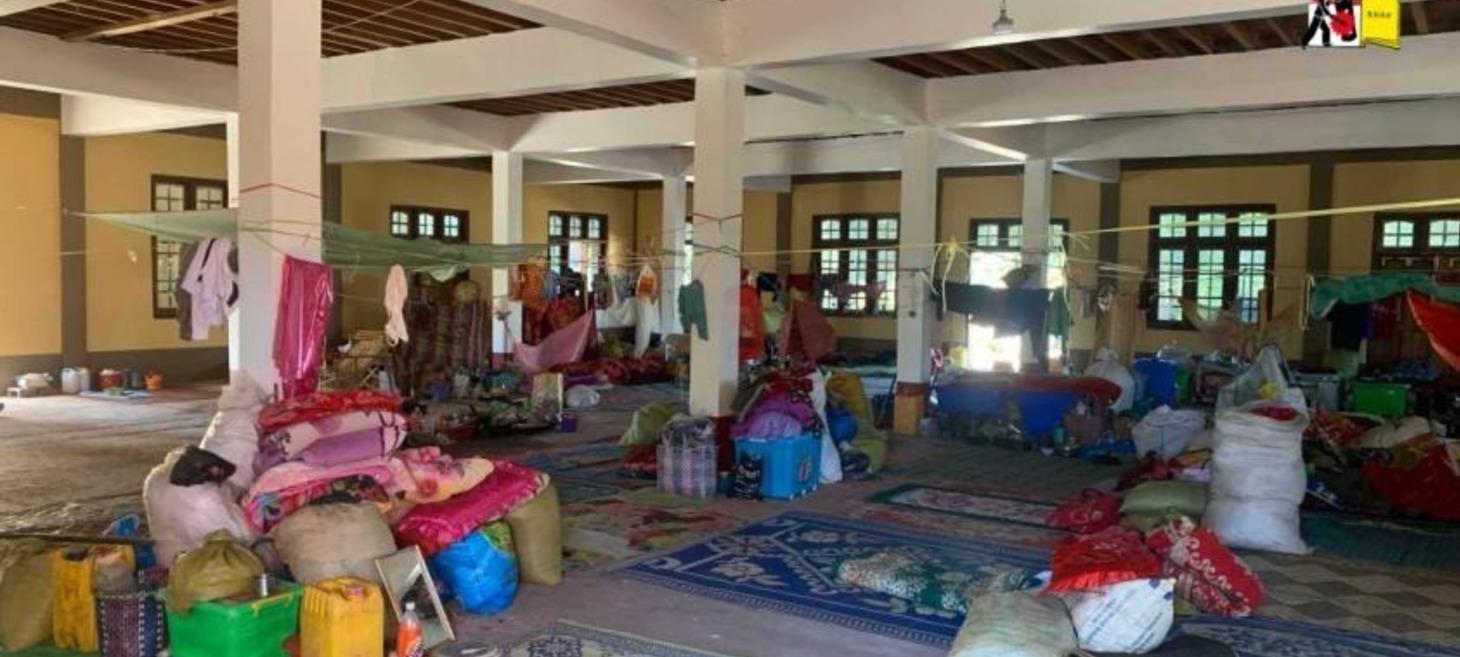
IDPs Reluctant to Return to Panglong Township Villages Occupied by Junta
Villagers from Banmauk and Konepaw in Panglong Township, Shan State, remain displaced due to the continued presence of Myanmar junta and Pa-O National Organisation (PNO) soldiers occupying their villages. Despite a lull in fighting, approximately 1,000 internally displaced persons (IDPs) from these villages are unable to return home, unlike others in the region, due to the military's occupation and the threat of landmines. The displaced villagers, currently sheltering in Nyaungshwe Township, face significant hardships, including a lack of work, income, and limited aid, forcing some to borrow money to survive. The fear of landmines is exacerbated by incidents such as a returning IDP stepping on a mine in Nawngwoe village, highlighting the ongoing dangers and stress faced by those attempting to return to their homes.
Politics
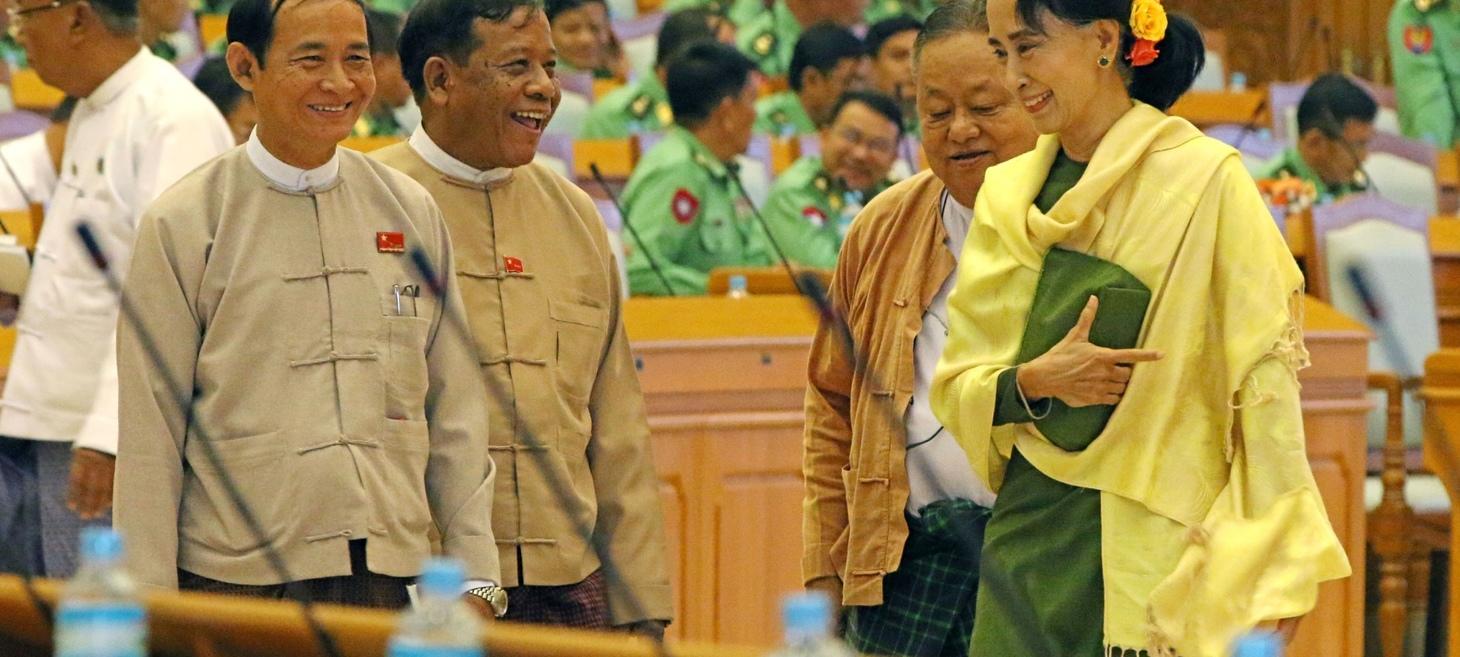
Myanmar junta seizes ousted civilian leaders’ real estate in Naypyitaw
Myanmar's military junta has seized real estate in Naypyitaw belonging to key figures of the ousted National League for Democracy (NLD), including Aung San Suu Kyi and former president Win Myint. The junta-controlled media reported the cancellation of 30-year leases on 36 land plots in Ottarathiri and Dekkhinathiri townships, with potential refunds for the payments made, though no reasons were provided for these actions. This move is part of the junta's broader efforts to consolidate power and suppress opposition following the military coup that deposed the NLD-led government.
Telecommunications

Meta faces appeal of $150 billion hate speech lawsuit over role in Myanmar genocide - Courthouse News Service
Meta (formerly Facebook) is facing an appeal of a $150 billion lawsuit related to its alleged role in facilitating hate speech that contributed to the genocide against Rohingya Muslims in Myanmar. The case was initially filed in 2018 by three Myanmar citizens who claimed Meta failed to prevent hate speech against the Rohingya on its platform. A U.S. district court dismissed the lawsuit in 2021, ruling that Meta wasn't responsible under American law because it wasn't headquartered in the United States at the time of the alleged violations. The plaintiffs are now appealing this decision to the Ninth Circuit Court of Appeals, arguing that Meta's global reach and influence should subject it to U.S. legal jurisdiction. The outcome of this appeal could have significant implications for tech companies' liability for content moderation and human rights abuses in foreign countries.
Weather & Environment

Myanmar Gold Mining Blamed for Polluted Thai Rivers
Gold mining activities in Myanmar's Shan State have been blamed for severe pollution in Thai rivers, particularly affecting the Sai River, which borders Myanmar and Thailand. Following unprecedented flooding in August 2024, a Thai government study identified large-scale gold mining in eastern Shan State as the cause of significant sediment buildup and pollution in Mae Sai Town, Thailand. The mining operations, controlled by armed groups and the Myanmar junta, have led to environmental degradation and health risks for downstream communities due to heavy metals like arsenic, nickel, and zinc contaminating the water. The Shan Human Rights Foundation highlighted the adverse effects on local communities, including increased miscarriages and agricultural damage, as a result of the polluted water.